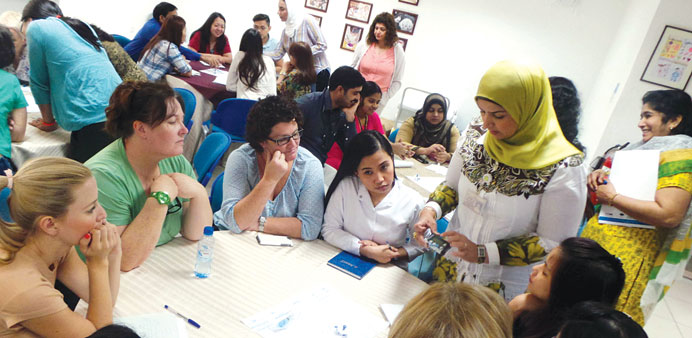The Qatar Diabetes Association (QDA), in collaboration with the paediatric endocrinology department at Hamad Medical Corporation (HMC) and the Supreme Education Council (SEC), held an advanced two-day course for 36 school nurses.
Dr Abdullah al-Hamaq, QDA executive director, said, “Diabetes is one of the most common chronic diseases among children and teenagers, and since children spend most of their day at school, there should be someone who is fully aware of the symptoms of diabetes and its complications to provide the best care for students with diabetes.
“By supporting school nurses with the latest information and methods to improve their skills, QDA is effectively improving students’ lives. This is the second session in a month, the first one was organised on March 16 and 17 for 27 nurses from independent schools.”
The course included many sessions relating to type-1 diabetes, the insulin system and its types, and how to adjust insulin dose. There were other sessions that raised issues about high and low blood sugar and how to handle such cases at schools.
The sessions also addressed the importance of nutrition as a therapy for controlling blood sugar, carbohydrates counting and healthy snacks. Exercise was also discussed as a tool to help students manage their condition.
Another session looked at the psychological aspect of diabetes, run by the HMC psychiatry department. Nurses were taught how to manage the different stages that students with diabetes go through, and when to communicate with the parents.
The nurses were also trained on how to apply QDA’s ‘students with diabetes medical plan at school’ policy. The course emphasised the importance of students with diabetes having regular blood sugar tests, administering the glucagon injection and giving correction doses of insulin if necessary.
QDA supports the ‘rights of students with diabetes’ programme by setting plans, printing posters, booklets and blood sugar tests cards, and providing free blood sugar testing machines to each school that has students with diabetes.

Nurses attending a session of advanced two-day diabetes course.
